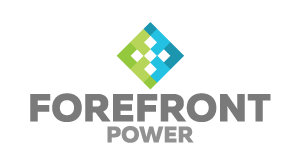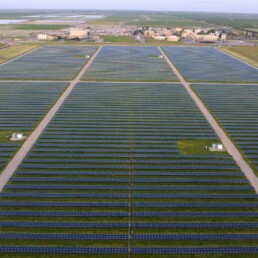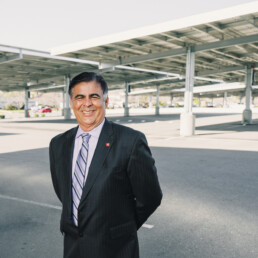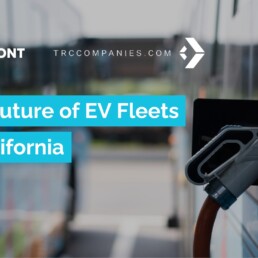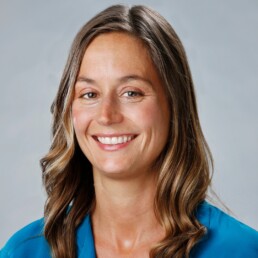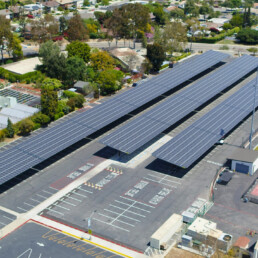We sat down with our Technical Development Manager Ray Adler to learn more about the problems he’s tasked with solving, favorite projects he’s worked on, and the perks of being a member of the ForeFront team.
Where are you from originally?
RA: I was born and raised in Olympia, Washington, but I have also lived in Boston, Seattle and Honolulu. The Pacific Northwest is such a beautiful spot, but is way too rainy for me, which I guess helps explain why I live in Oakland!
What do you like to do in your free time? Do you have any hobbies?
RA: I like 3D printing but now, I’m mostly a parent because my partner and I just had a baby in July, which is really exciting. When I’m not doing that, I like mountain biking, playing soccer and board games.
What did you want to be when you grew up?
RA: First I thought about being a helicopter pilot. Then being an inventor sounded like a cool idea. You learn about these people in history who invented all this amazing technology. I didn’t really know how to become an inventor but I figured that’s kind of what an engineer does, so I decided to go to school to become one.
Who was one of your childhood heroes? Who inspired you?
RA: In terms of getting into engineering, I was most inspired by family friends who were engineers. I was always interested in the projects they were working on and the issues they were solving. And then, in terms of childhood heroes, I think Amelia Earhart or Neil deGrasse Tyson if I had to pick.
What led you into the energy field?
RA: Having an engineering degree was important because my path into the field was through system design. For every solar installation, somebody has to put together the plan set and conceptualize the system before it gets installed. As for how I got into solar, my friend was working in Hawaii at a solar company when I decided to move out there. Hawaii is a great place to work in solar, and not just because it is sunny all the time. Historically, it’s been a very hospitable market, and the state incentivized solar early on, for both residential and commercial electricity customers. While I waited for a position to open up where my friend worked, I was scuba diving, driving a taxi, and doing whatever else I could to make money. Finally a position did become available in the design department and that’s how I found my way into solar.
How did you find ForeFront Power?
RA: I was working at a different solar company and became pretty unexcited about the idea of working there long term. Recruiters were always calling, and one of them called about an engineering position on the Design & Engineering team at Forefront.
In solar, a pretty natural way to advance your career is by working on bigger, more complicated projects, which Forefront offered. I also really liked the D&E team, and Aaron Sanders, the Director of Engineering. During our interview, he emphasized the importance of preventing burnout. I was burned out by my last job, so that felt like a healthier culture to be stepping into. Plus the job came with great benefits and the opportunity to work with a bunch of really smart and diligent people.
When did you join the team? What is your current role at ForeFront Power?
RA: I joined in 2021 as a Project Engineer. In May 2022, I moved over to the development team as a Technical Development Manager. My primary function is to assist with developing COGS estimates. COGS are basically the costs associated with solar and storage projects. We need to estimate our costs upfront so that we can price our projects appropriately to help ensure they are profitable. I work closely with Sales, D&E, and folks in the Development group to anticipate the various technical challenges that might occur which could impact cost and help move projects forward to contract.
What are some of the technical problems you’re tasked with solving throughout project development?
RA: Relying on experience is vital. At ForeFront, there’s a wealth of knowledge, so people have experience with many problems we face, but new problems arise too. For example, we have these compressed natural gas (CNG) fueling stations in a bus yard for a school district, and we need to figure out how to install solar canopies over them safely given the additional hazard. We have EPCs that we work with who are knowledgeable, and they were able to help us understand the issues we were facing from a code standpoint. And from there, I found a solar company that had safely installed solar over CNG stations, so I called their engineering department and had a conversation with them. In that type of situation, it’s about thinking creatively and reaching out to whoever you need to get the information, and then making design recommendations based on what you learn.
Do you have any favorite projects you’ve worked on so far?
RA: My favorite project is the Oakland Unified School District (OUSD) portfolio. I’m passionate about it because I live in Oakland and when I go around town, I drive by these sites and I imagine in the future, my kid(s) will go to one of these schools. When I heard about the opportunity, I volunteered right away. The team building it is a fun group, and it’s been great seeing how projects are developed here at ForeFront.
Which benefits and perks of working at ForeFront Power do you enjoy most?
RA: The Employee Training and Development Policy for one; ForeFront offers $5,000 annually that you can use to pay for professional development expenses, like courses applicable to your job. That’s meaningful, and I have taken advantage of that. When I first started, I took a course on Energy Storage Systems (ESSs), which besides being interesting to me, got me more comfortable with ESS terminology since it can be pretty nuanced.
Another benefit I appreciate is the annual donation match. FFP matches employee donations dollar for dollar, up to $500, to organizations we’re passionate about.
At Forefront, all employees can go on 100% paid parental leave. I commend the company for offering that worldwide to all employees. It’s essential, and yes, I took the eight weeks, and I’m incredibly grateful for that.
Before I took my leave, I had conversations with multiple department heads and they all encouraged me to take that time, use the benefit, and know that my career at Forefront wouldn’t be impacted by putting my family first.
What important lessons have you learned in your solar energy career so far?
RA: One lesson I’ve learned is that working in a field that fits your values is important. I have worked in a number of sectors from medical device development to aerospace and I have found that in solar, I don’t lose any sleep over the impact my job is making on the planet. In general, I feel pretty good about the projects I work on each day, which hasn’t always been the case for me.
What advice would you give to young people pursuing energy careers today?
RA: If you or someone you know is trying to get a job in solar, try to find someone in the field who is willing to chat. They might tell you about a solar job that fits your skill set that you didn’t even know existed, or simply connect you with another person who would be good to chat with. I am always happy to chat with people trying to enter the field, and I think a lot of people in the industry are happy to help newcomers too
Interested in learning more?
We would love to discuss how our solutions might be a fit for your organization. Contact one of our solar, storage, or e-mobility experts today:
